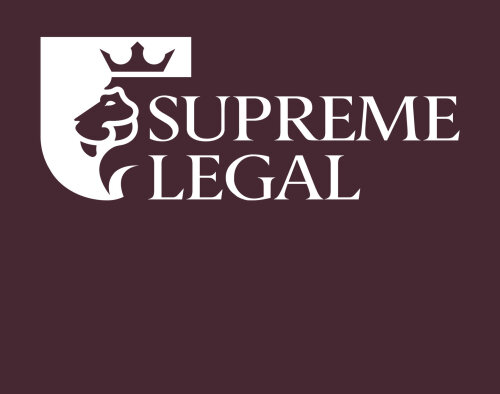Best Appeal Lawyers in Phuket
Share your needs with us, get contacted by law firms.
Free. Takes 2 min.
List of the best lawyers in Phuket, Thailand
Legal guides written by SIAM LEGAL INTERNATIONAL:
- Defamation Laws in Thailand: Criminal Charges and Civil Suits
- The State of Thailand’s Long-Term Resident (LTR) Visa Program in 2025
- The Penalties Of Not Filing Your Income Tax Return As A Foreigner In Thailand
About Appeal Law in Phuket, Thailand
Appeal law in Phuket, as in the rest of Thailand, provides a mechanism for reviewing and potentially reversing decisions made by a lower court. The appellate system is an integral part of the Thai judicial process, ensuring that justice is administered fairly and accurately. When a decision by a lower court is contested, appellants can take their case to one of several appellate courts, depending on the specific nature and location of the case. Phuket, being a significant provincial region, is served by regional appellate courts which follow the statutory and procedural laws of Thailand.
Why You May Need a Lawyer
There are several common situations where an individual might require legal assistance with appeals in Phuket:
- You have been convicted of a crime and believe there was a legal error in your trial.
- Your civil case resulted in an unfavorable judgment that you believe was incorrect due to procedural mistakes.
- You are involved in a family law matter, such as custody or property division, and wish to challenge the court's decision.
- You face commercial litigation and need to contest a decision that affects your business operations negatively.
- You need professional guidance to understand the complex procedural requirements for filing an appeal in Thailand.
Local Laws Overview
The appeal process in Phuket falls under the Thai legal framework, which operates in several hierarchical layers. Appellate procedures typically involve complex rules concerning the admissibility of evidence, the scope of review allowed, and the timeline for appeal submissions. Important elements to consider include:
- The necessity to file a notice of appeal within 30 days of the judgment being rendered in most cases.
- The requirement to present new facts or legal theories to support your appeal.
- The role of administrative courts for cases involving governmental or official decisions.
- The appellate courts’ focus primarily on legal errors rather than factual reassessment.
- The potential for further appeal to the Supreme Court of Thailand depending on the legal issue in question.
Frequently Asked Questions
What is the first step in the appeal process?
The first step is to file a notice of appeal with the court that issued the original decision. This must be done within the timeframe specified by Thai law, usually 30 days from the date of the judgment.
Can new evidence be submitted during an appeal?
Typically, the appellate court only reviews the evidence presented in the original trial. New evidence can rarely be introduced unless exceptional circumstances are proven.
How long does the appeal process take?
The duration can vary, but appeals can take several months to over a year, depending on the complexity of the case and the court’s schedule.
Is it mandatory to hire a lawyer for an appeal?
While it's not legally required, it is strongly recommended to hire a lawyer because appeal processes are complex and require skilled handling to succeed.
What are the costs involved in filing an appeal?
Costs will vary based on legal fees, court fees, and additional expenses such as obtaining trial transcripts. Always discuss costs with your lawyer upfront.
Can appeal decisions be further contested?
Yes, in certain cases, decisions by appellate courts can be taken to the Supreme Court if significant legal questions are involved.
What happens if an appeal is successful?
If successful, the appellate court may reverse the original decision, modify it, or remand the case back to the lower court for further proceedings.
Can the appeal decision be worse than the original one?
Yes, there is a risk that the appellate court could find additional evidence or legal errors that could lead to a less favorable outcome.
How are appeals different from trials?
Appeals focus on reviewing the application of the law and prior proceedings rather than reassessing factual evidence or hearing witness testimony.
What if I miss the deadline for filing an appeal?
Missing the deadline usually results in forfeiture of the right to appeal, although, in exceptional situations, an extension might be granted.
Additional Resources
For further information and assistance regarding appeals in Phuket, Thailand, the following resources may be helpful:
- Office of the Judiciary of Thailand
- Thai Lawyers Association
- Phuket Provincial Court
- Legal Aid Centers in Thailand
- Embassy services for your specific nationality, which may offer guidance or support
Next Steps
If you believe you require legal assistance with an appeal in Phuket, consider taking these steps:
- Research and select a lawyer who specializes in appellate cases and is familiar with the local judiciary system.
- Schedule an initial consultation to discuss your case, understand potential outcomes, and how the lawyer plans to approach your appeal.
- Gather all relevant documents and evidence related to your case to assist your lawyer in reviewing your situation comprehensively.
- Understand the timeline and costs associated with your appeal process by discussing them explicitly with your lawyer.
- Stay informed about the progress of your appeal, and maintain open communication with your legal representative.
Lawzana helps you find the best lawyers and law firms in Phuket through a curated and pre-screened list of qualified legal professionals. Our platform offers rankings and detailed profiles of attorneys and law firms, allowing you to compare based on practice areas, including Appeal, experience, and client feedback.
Each profile includes a description of the firm's areas of practice, client reviews, team members and partners, year of establishment, spoken languages, office locations, contact information, social media presence, and any published articles or resources. Most firms on our platform speak English and are experienced in both local and international legal matters.
Get a quote from top-rated law firms in Phuket, Thailand — quickly, securely, and without unnecessary hassle.
Disclaimer:
The information provided on this page is for general informational purposes only and does not constitute legal advice. While we strive to ensure the accuracy and relevance of the content, legal information may change over time, and interpretations of the law can vary. You should always consult with a qualified legal professional for advice specific to your situation.
We disclaim all liability for actions taken or not taken based on the content of this page. If you believe any information is incorrect or outdated, please contact us, and we will review and update it where appropriate.

















